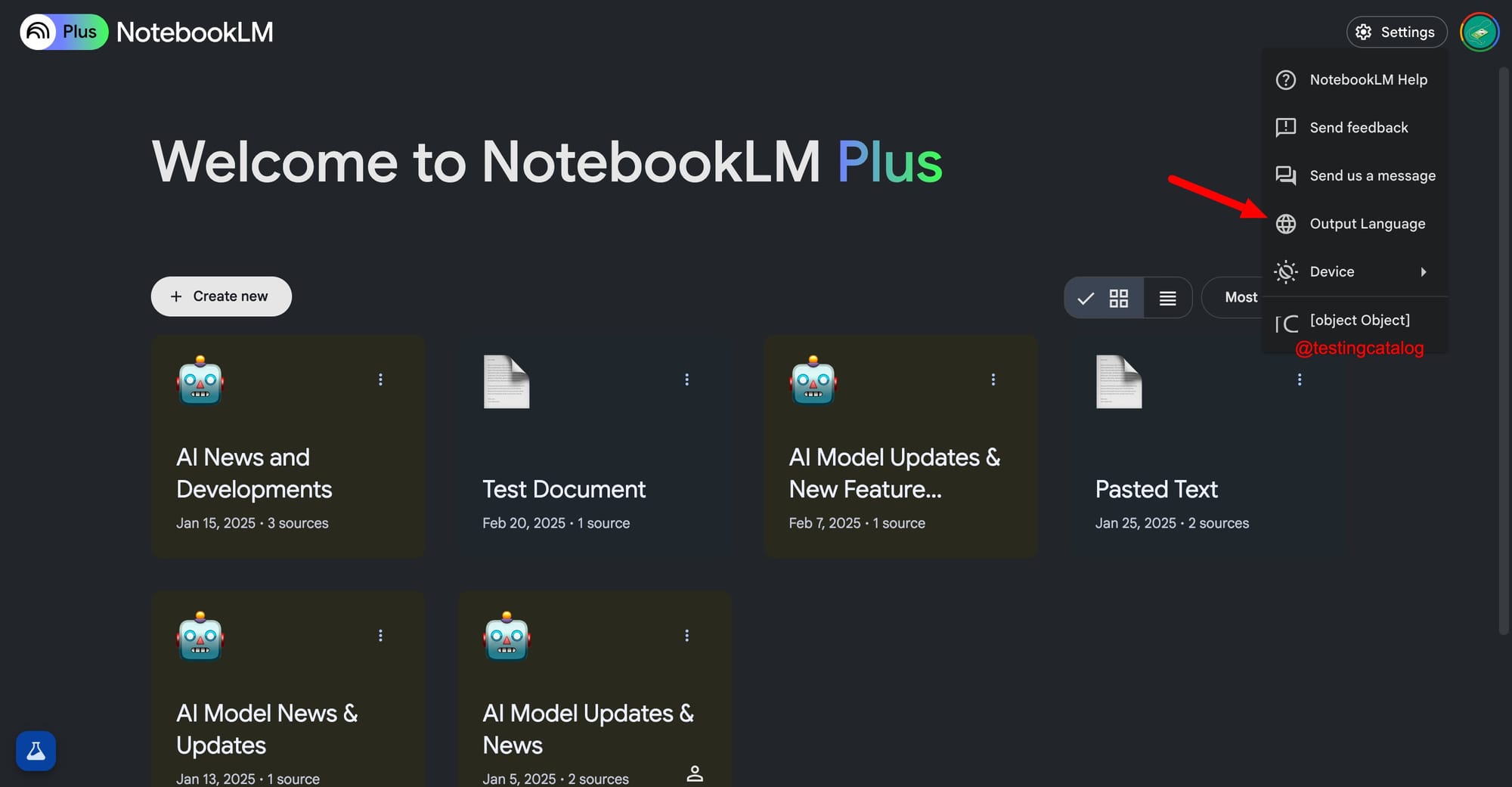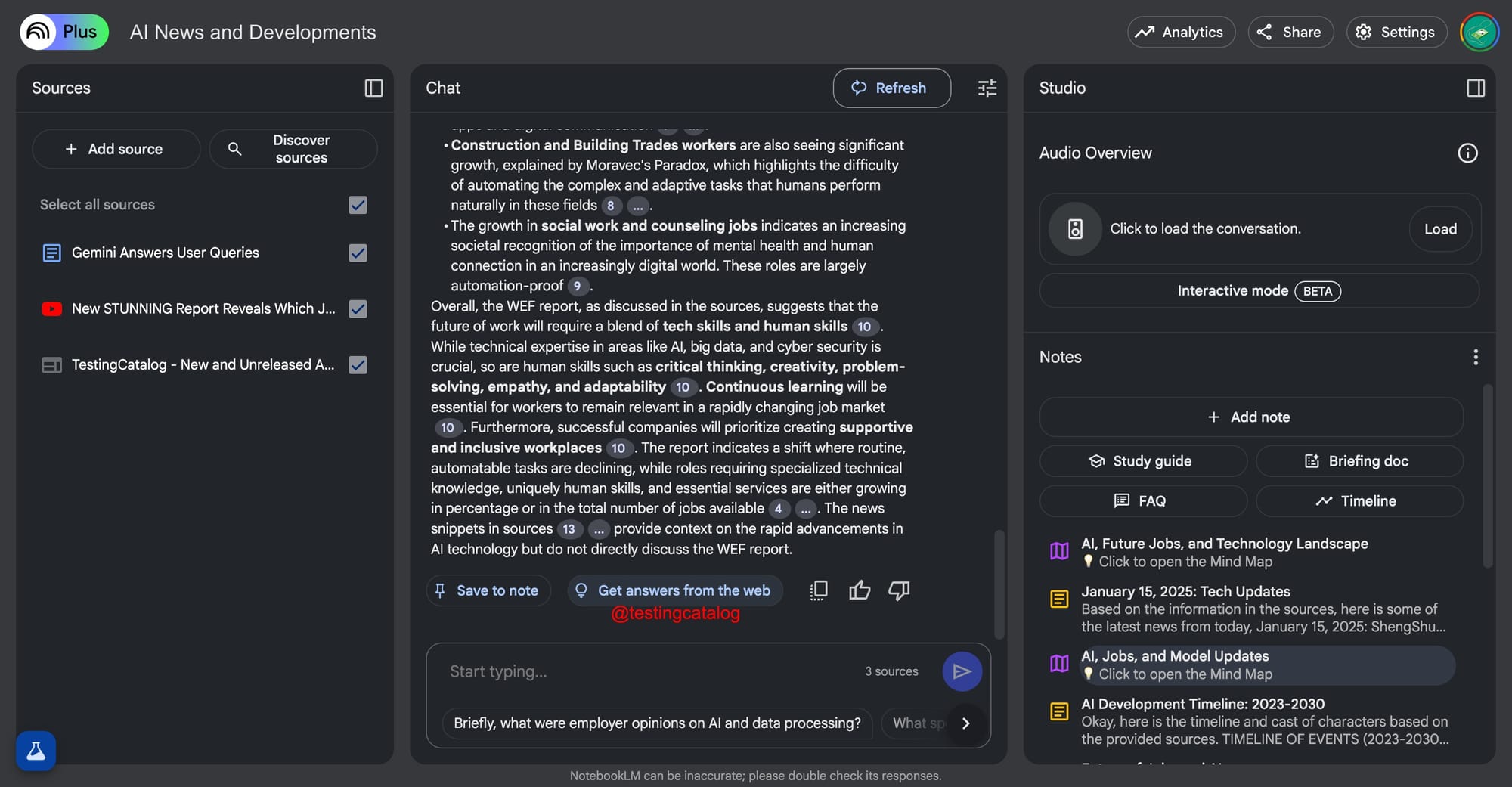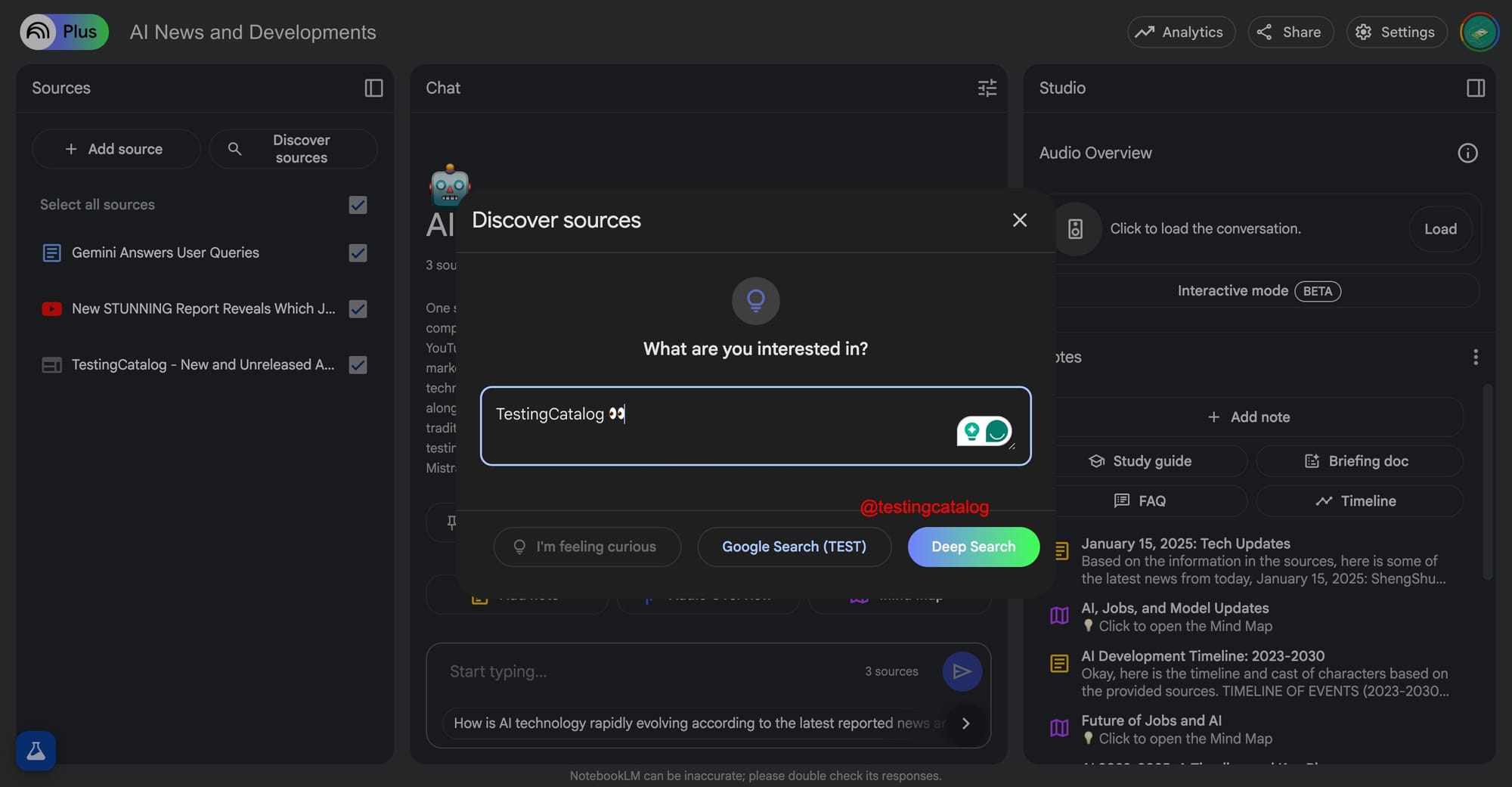Google is reportedly developing new features for NotebookLM, its AI-powered research assistant, which could significantly expand its functionality. These updates are still in development and not yet available to the public.
One of the potential updates includes support for more languages. A new "Output Language" setting has been discovered, which appears to allow developers to override the default language output. This could make NotebookLM more accessible to non-English speakers, though its implementation details remain unclear.

Another major addition seems to be a feature called "Discover Sources," now expanded with options like "I am feeling curious," "Search," and "Deep Search." These tools suggest that NotebookLM might integrate capabilities similar to Gemini's "Deep Research," enabling users to conduct multi-step research plans and generate comprehensive reports with citations. Additionally, a new chat suggestion hints at the ability to search the internet directly for follow-up queries, which would enhance its research capabilities.

These features align with Google's broader strategy of integrating AI tools across platforms. Interestingly, some features from NotebookLM, such as Audio Overviews and a Sources folder, are being incorporated into Gemini on the web, indicating a cross-pollination of functionalities between Google's AI products.
The timeline for these updates is uncertain, but they could significantly bolster NotebookLM's utility for students, researchers, and professionals. The integration of multilingual support and advanced research tools would position it as a more competitive alternative to other AI assistants like ChatGPT or Perplexity.
These developments reflect Google's ongoing efforts to refine its AI ecosystem while addressing user feedback on limitations like language barriers and research depth. If successfully implemented, these features could make NotebookLM an indispensable tool for knowledge management and advanced research tasks.






